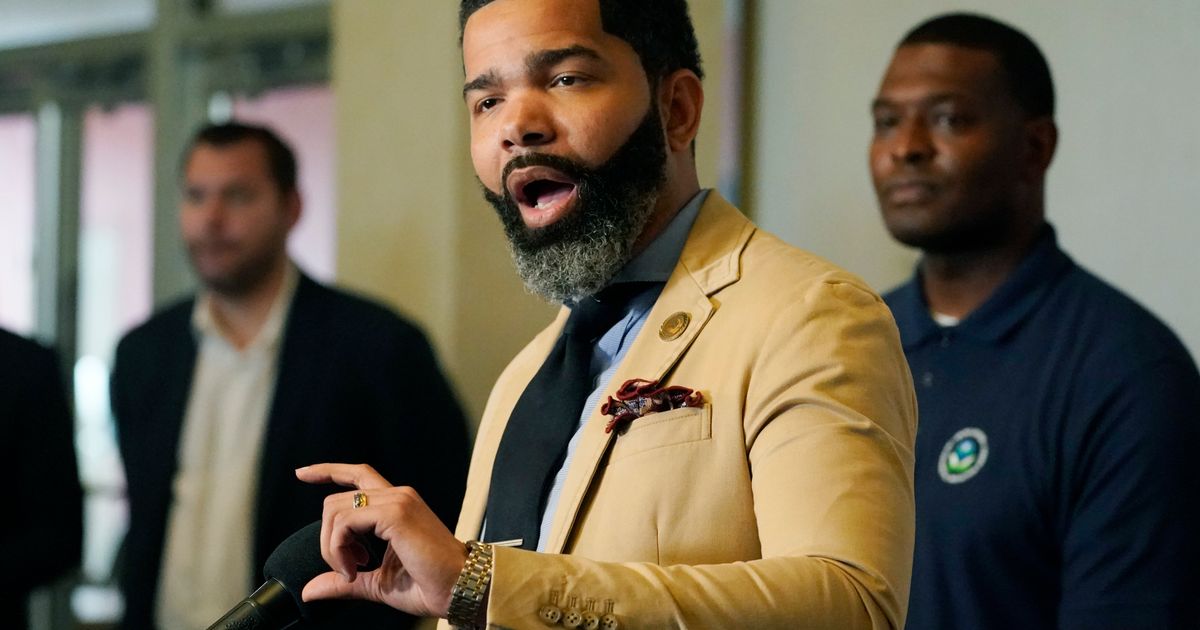JACKSON, Miss. (AP) — The U.S. Environmental Protection Agency confirmed Monday that water in Mississippi’s capital is safe to drink, after months of sampling at a treatment plant submerged by August flooding. which caused serious supply disruptions.
The beleaguered OB Curtis water treatment plant fell into crisis after late summer floods left 150,000 people without running water for several days. People lined up for water to drink, wash, cook and flush. The crisis has also compounded rising costs for business owners already struggling with labor shortages and high inflation.
The city had already been on a boil water advisory since late July because the state health department found cloudy water that could make people sick. But current water samples manage to be safely consumed, the EPA said.
“Current sampling confirms that the water supplied by JH Fewell Water and OB Curtis Water Treatment is safe to drink,” EPA spokeswoman Maria Michalos said, referring to the city’s two water treatment plants. town.
The agency encouraged Jackson residents to stay vigilant for updates and to follow all future boil water advisories because “localized issues” could resurface. It is not yet certain that Jackson has too much lead and copper in his water. Sampling for lead and copper is complete and results are expected in mid-November.
The sample was collected during a series of tests over the past few months conducted by the EPA and the Mississippi Department of Health, Jackson Mayor Chokwe Antar Lumumba said.
At a news conference, Lumumba said Monday city officials were told Jackson was “in compliance with the Safe Drinking Water Act,” the federal law that gives the EPA authority to set standards. drinking water quality.
Current samples indicate that Jackson’s water quality meets federal standards, although testing is ongoing.
The EPA is coordinating with the city and state health department to sample water and “confirm that drinking water delivered to customers meets the standards of the Safe Drinking Water Act,” Michalos said.
Although water pressure was restored in the days following the crisis in late August and a boil water advisory was lifted, many people are still not drinking the water and haven’t done so for years amid continued mistrust of supply.
In September, attorneys for the US Department of Justice said they were “ready to sue” the city under the Safe Drinking Water Act, but hoped they could avoid a legal dispute by reaching to a “binding agreement”. Federal prosecutors said state and local officials “failed to act to protect public health.”
On Monday, Lumumba said negotiations between city prosecutors and the federal government were continuing.
In response to a question about whether Jackson could still face legal action under the Safe Drinking Water Act, Michalos said that “the EPA does not comment on matters of application in progress”.
In an Oct. 20 announcement, the EPA said it was investigating whether Mississippi state agencies discriminated against Jackson by refusing to fund improvements to the city’s water supply system. , where more than 80% of residents are black and about a quarter of the population lives in poverty.
Democratic Rep. Bennie Thompson, who represents Jackson, said the EPA’s civilian investigation is expected to last about four months.
Lumumba also said the city is moving forward with plans to get a private company to operate the OB Curtis water treatment plant. Several companies have already visited the factory, Lumumba said. Even as the city seeks to contract out plant operations and maintenance to a private company, Lumumba has been adamant that ownership of the city’s water system should remain in public hands.
On Friday, Mississippi Governor Tate Reeves extended a state of emergency over the water crisis until Nov. 22. City officials aim to conclude a contract with a private operator by Nov. 17, Lumumba said.
___
Michael Goldberg is a member of the Associated Press/Report for America Statehouse News Initiative. Report for America is a nonprofit national service program that places reporters in local newsrooms to report on underreported issues. Follow him on Twitter at twitter.com/mikergoldberg.

